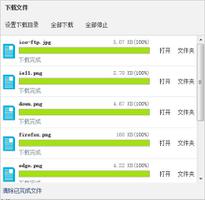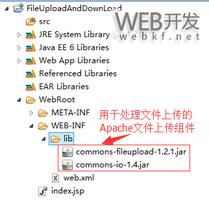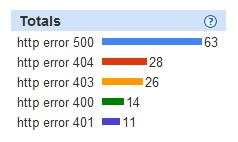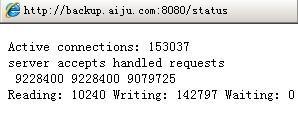用于文件下载的HTTP标头
我已经编写了一个PHP脚本来处理下载" title="文件下载">文件下载,确定请求哪个文件并设置正确的HTTP标头以触发浏览器实际下载文件(而不是在浏览器中显示文件)。
我现在遇到一个问题,一些用户报告了某些文件被错误标识(因此,无论扩展名如何,浏览器都将其视为GIF图像)。我猜这是因为我没有在响应头中设置“
Content-type”。这种情况最有可能吗?如果是这样,是否有一种相当通用的类型可用于所有文件,而不是尝试考虑每种可能的文件类型?
当前,我仅设置值“ Content-disposition:附件; filename = arandomf.ile”
我按照这里的指南建立了一个更健壮的文件下载过程(http://w-shadow.com/blog/2007/08/12/how-to-
force-file-download-with-php/) ,但是在执行脚本与显示浏览器的下载对话框之间存在明显的延迟。谁能找出造成这种情况的瓶颈?
这是我的实现:
/** * Outputs the specified file to the browser.
*
* @param string $filePath the path to the file to output
* @param string $fileName the name of the file
* @param string $mimeType the type of file
*/
function outputFile($filePath, $fileName, $mimeType = '') {
// Setup
$mimeTypes = array(
'pdf' => 'application/pdf',
'txt' => 'text/plain',
'html' => 'text/html',
'exe' => 'application/octet-stream',
'zip' => 'application/zip',
'doc' => 'application/msword',
'xls' => 'application/vnd.ms-excel',
'ppt' => 'application/vnd.ms-powerpoint',
'gif' => 'image/gif',
'png' => 'image/png',
'jpeg' => 'image/jpg',
'jpg' => 'image/jpg',
'php' => 'text/plain'
);
$fileSize = filesize($filePath);
$fileName = rawurldecode($fileName);
$fileExt = '';
// Determine MIME Type
if($mimeType == '') {
$fileExt = strtolower(substr(strrchr($filePath, '.'), 1));
if(array_key_exists($fileExt, $mimeTypes)) {
$mimeType = $mimeTypes[$fileExt];
}
else {
$mimeType = 'application/force-download';
}
}
// Disable Output Buffering
@ob_end_clean();
// IE Required
if(ini_get('zlib.output_compression')) {
ini_set('zlib.output_compression', 'Off');
}
// Send Headers
header('Content-Type: ' . $mimeType);
header('Content-Disposition: attachment; filename="' . $fileName . '"');
header('Content-Transfer-Encoding: binary');
header('Accept-Ranges: bytes');
// Send Headers: Prevent Caching of File
header('Cache-Control: private');
header('Pragma: private');
header('Expires: Mon, 26 Jul 1997 05:00:00 GMT');
// Multipart-Download and Download Resuming Support
if(isset($_SERVER['HTTP_RANGE'])) {
list($a, $range) = explode('=', $_SERVER['HTTP_RANGE'], 2);
list($range) = explode(',', $range, 2);
list($range, $rangeEnd) = explode('-', $range);
$range = intval($range);
if(!$rangeEnd) {
$rangeEnd = $fileSize - 1;
}
else {
$rangeEnd = intval($rangeEnd);
}
$newLength = $rangeEnd - $range + 1;
// Send Headers
header('HTTP/1.1 206 Partial Content');
header('Content-Length: ' . $newLength);
header('Content-Range: bytes ' . $range - $rangeEnd / $size);
}
else {
$newLength = $size;
header('Content-Length: ' . $size);
}
// Output File
$chunkSize = 1 * (1024*1024);
$bytesSend = 0;
if($file = fopen($filePath, 'r')) {
if(isset($_SERVER['HTTP_RANGE'])) {
fseek($file, $range);
while(!feof($file) && !connection_aborted() && $bytesSend < $newLength) {
$buffer = fread($file, $chunkSize);
echo $buffer;
flush();
$bytesSend += strlen($buffer);
}
fclose($file);
}
}
}
回答:
根据RFC 2046(多用途Internet邮件扩展):
对于接收
“应用程序/八位字节流”实体的实现,建议采取的措施是简单地将数据放入文件中
所以我会去那个。
以上是 用于文件下载的HTTP标头 的全部内容, 来源链接: utcz.com/qa/414202.html









